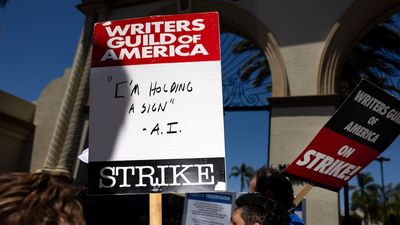Here’s What the WGA Agreement Detailed About AI Usage
Days after the Writers Guild of America (WGA) made a tentative deal to end the writer’s strike, details have arisen regarding the usage of text-based generative AI tools.
New details have emerged in the tentative Writers Guild of America (WGA) deal regarding A.I. text-based generative tools. On Monday (September 25), the organization voted to officially end its strike after 146 days, five months after demanding a fair contract from the Alliance of Motion Picture and Television Producers (AMPTP).
As Hollywood writers are scheduled to return to work on Wednesday (September 27), the new contract protects them from generative AI usage during the writing process. Although writers can opt to use AI software (like ChatGPT) individually if given consent from a studio or company, it must be disclosed.
AI is also prohibited to write or rewrite full scripts and cannot be considered source material. A company also cannot instruct writers to incorporate AI-generated content into their work. The new contract will be in effect for three years, lasting until May 1, 2026.
“The WGA reserves the right to assert that exploitation of writers’ material to train AI is prohibited by [the contract] or other law,” reads WGA’s summary of the contract.
Although the WGA strike is over, SAG-AFTRA has continued theirs, with numerous actors making a stand for better pay and working conditions, along with provisions against AI replacing human actors, some who work in the video game industry. “For many performers, their first job may be their last, as companies become increasingly eager to scan our members or train AI with their voices as soon as they show up for work,” reads the SAG-AFTRA website.
Once joking about the possibility of A.I. changing Hollywood was the Netflix show BoJack Horseman, who envisioned actors being replaced by deep fakes.


